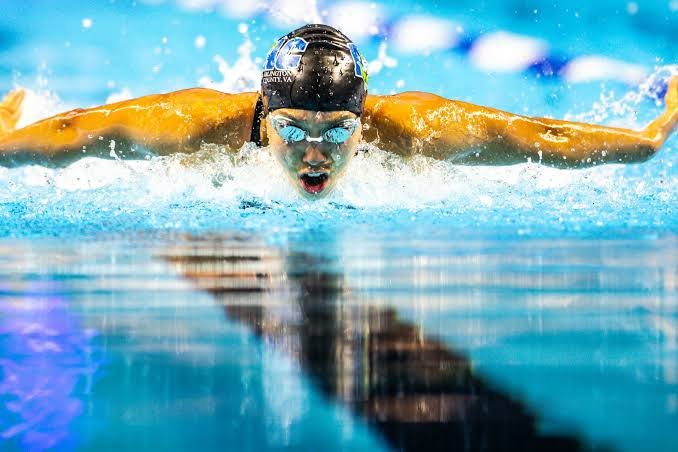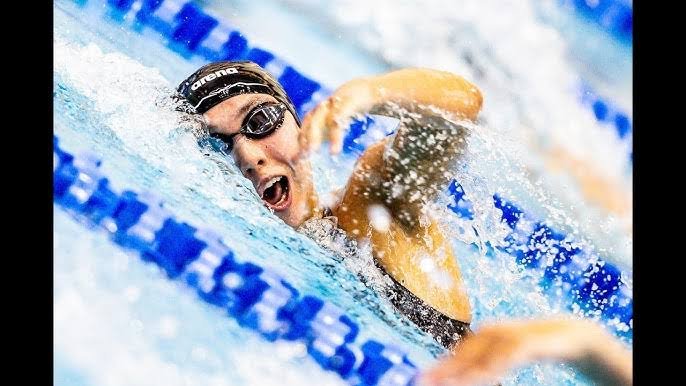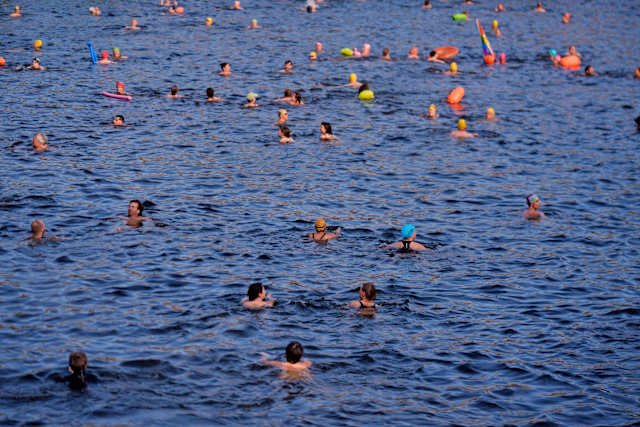
In her already Hall-of-Fame deserving international career, Torri Huske has secured an individual Olympic gold medal and a world title, along with a total of 26 senior-level international medals. The victory that has escaped her has been at the college level, as Huske has never placed higher than second at the NCAA Championships.
During her freshman NCAA Championships, Huske secured second place behind Alex Walsh in the 200 IM and finished second to Kate Douglass in the 100 butterfly, ultimately winning the B-final of the 100 freestyle with the fourth-best time of the evening. One year later, Huske finished under the current NCAA record in the 200 IM and was mere hundredths away from the existing 100 fly record, but Douglass shattered both records en route to her titles. The involvement of Douglass, Maggie Mac Neil, and Gretchen Walsh resulted in Huske achieving two second-place finishes and one third place.
She skipped college competitions in 2024 to prepare for the Olympics, a choice that proved worthwhile with a gold medal in the 100-meter fly amid her five-medal achievement in Paris, and now she comes back to college facing the Walsh sisters as her primary challenges for individual championships. The challenge of winning will be simpler in 2026, as Huske will be in her final season with the Cardinal and both Alex and Gretchen will have used up their NCAA eligibility, yet we shouldn’t dismiss Huske’s potential to achieve success this year.
That doesn’t imply she can upset Gretchen again in the 100 fly, especially not in the short course format where the Virginia senior spends most of her race underwater, thereby evading the fading that permitted Huske to catch her in the Olympic final. However, the 200 IM might appear different as Huske competes against the older Walsh sister, who is already a three-time national champion in this event. Huske’s progress in the long course 200-meter IM serves as proof.
She competed in the event at the 2024 U.S. Olympic Trials, but since she had already qualified in the 100 fly and 100 free, chose to skip the final to concentrate on the 50 free. However, before that choice, Huske had a strong opportunity to secure an Olympic position in the event after improving her best time from 2:09.75 to 2:08.47 in the preceding months. That time was just under four tenths slower than Kaylee McKeown’s winning swim for Olympic bronze in the event.
Even though Huske mainly shines in butterfly and freestyle, she is quite capable in the other strokes as well. Breaststroke might be seen as her least strong stroke, yet during Stanford’s dual meet with UCLA last weekend, Huske recorded a time of 2:08.82 in the 200-yard breast, placing her among the top-20 athletes in the nation this college season. It’s fair to say she is the sole swimmer ranked that highly who will not compete in the event at the NCAA Championships.
In the meantime, Huske has demonstrated significant progress in freestyle in the last year. She achieved her best time, surpassing it by over half a second, to unexpectedly win an Olympic silver in the 100-meter freestyle in Paris, and she recorded a time of 1:41.90 in the 200-yard during Stanford’s dual meet versus USC. That time was a personal record by three hundredths and the No. 3 rank in the nation this season. A pursuit of a national title in the 200 free could be feasible, although it would necessitate Huske foregoing the 100 fly at the NCAA Championships since the two events are scheduled consecutively.
Regardless of her personal outcomes, Huske will be the standout of a Stanford team looking to improve its position after finishing fifth last season. In the past, the Cardinal secured three straight women’s national championships from 2017 to 2019, thanks to Katie Ledecky, Simone Manuel, Ella Eastin, and Brooke Forde claiming individual titles. Following Huske’s significant contributions to third-place results in 2022 and 2023, the goal is once again attainable this season, with a chance to challenge Texas for the No. 2 ranking.
Huske will receive support on this year’s team: senior distance athlete Aurora Roghair is currently placed second nationally in the 1650 free and third in the 500 free, while sophomore Caroline Bricker is the sole swimmer to have broken 4:00 so far this season in the 400 IM. Lucy Bell, a junior primarily recognized for her individual medley swimming in her initial two years, has emerged as a standout in the breaststroke events; her 200-yard finish of 2:05.92 versus USC places her No. 2 nationally, and in the 100, she recorded 58.53 to overcome 2022 NCAA champion Kaitlyn Dobler. Breaststroke has been a vulnerable stroke for the Cardinal in recent seasons, but with several skilled breaststrokers having graduated, Bell may find an opportunity.
However, any national success Stanford attains will largely be attributed to Huske’s prominence. Even if she falls short of that hard-to-reach individual title due to tough rivals, she will certainly accumulate over 50 individual points and be an essential contributor in four Stanford relays. However, for a swimmer who has accomplished so much already, a personal national title would beautifully complete Huske’s resume.

